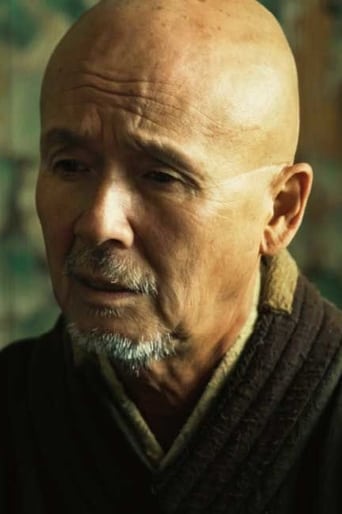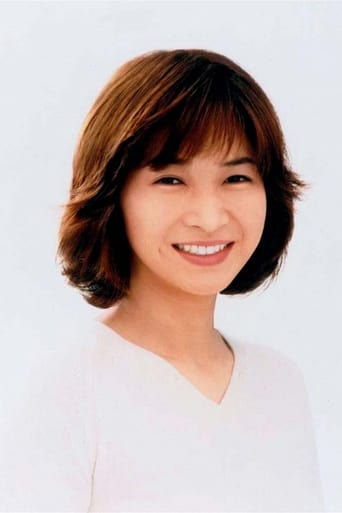ReaderKenka
Let's be realistic.
Hayden Kane
There is, somehow, an interesting story here, as well as some good acting. There are also some good scenes
Kien Navarro
Exactly the movie you think it is, but not the movie you want it to be.
Fatma Suarez
The movie's neither hopeful in contrived ways, nor hopeless in different contrived ways. Somehow it manages to be wonderful
lreynaert
Chikamatsu Monzaemon (1653-1725), a bunraku (puppet theater) and kabuki playwright is rightly called the Japanese Shakespeare. This movie 'Yari no Gonza' by Masahiro Shinoda is based on a bunraku play by him. However, the main character here is rather more a well-known French one than a Shakepearean one. Chikamatsu Monzaemon painted a remarkable portrait of a ruthlessly ambitious and amoral character: a young samurai, who through his good looks tries to force his way up into the Edo hierarchy. During the Edo period (17th - 19th century), Japan was controlled by a shogun, a chief military commander, and his vassals, the diamiōs (feudal lords). Gonza is the alter ego of Julien Sorel, the (anti)hero in the novel 'The Red and The Black' by Stendhal and of the perfidious 'Bel- Ami' in Guy de Maupassant's book, both blinded by career prospects. Taeko Tomioka transcribed the 'puppet' story for the screen into a very appealing realistic and twisted thriller. Hiromi Gô in the main role and the exquisitely glamorous Shima Iwashita as Osai (the 'adulteress') shine in an outstanding cast . A masterpiece.
Michael Neumann
The rituals of peacetime prove to be more dangerous than the perils of war for the restless Samurai of the film's title, brought low not by swordplay but by the arcane study of the tea ceremony. Eager to learn its secrets, he accepts an invitation to wed his master's eldest daughter, despite having already promised himself to the sister of a rival warrior. Duplicity leads to tragedy in this potent melodrama, told with an urgency uncommon to Japanese medieval romance. Director Masahiro Shinoda, once an assistant to Ozu and at the time a rising star on the international film circuit, demonstrates again his assured technique, blending classical themes of honor and duty with a more colorful, contemporary approach to style.
gordon-31
The sets and costumes are wonderful and take you back to the early Tokugawa period. If you feel that some of the acting is understated you should remember that the people of the samurai class were not supposed to show their emotions. They should be quiet, calm and composed no matter what the circumstances. It is in the Japanese theatre, bunraku and kabuki, that emotions are allowed greater freedom. So I think the acting is an authentic portrayal of the period.The beautiful color photography should also be mentioned.
jacqui-3
GONZA the SPEARMAN's true asset is the acting of Iwashita Shima, who has acted in many other films of director Shinoda (also her husband.) I actually sat down expecting to be blown away by the combination of cinematographer Miyagawa (Rashomon, Ugetsu), composer Takemitsu (Ran, Kwaidan) and Shinoda...but what a disappointment!The picture is gorgeous to look at, and the sounds effectively disturbing when Iwashita bursts into her womanly rage and jealousy. Yet, GONZA does not hold well as a whole. The title character Gonza is a pretty boy-slash-expert-spearman, but his is a performance that is wooden at best. Much of his character is not demonstrated visually or by story, but rather we learn about his nature and personality through what others sing or speak of him.Another bothersome aspect is the lack of relationship between people and space. You are likely to walk away from the picture feeling detached from the characters, because they just seem to float about on the streets, in this room and that, etc. I mean, static cutaway shots do not necessarily edit well together - to give a sense of Iwashita's opulence and isolation (although these were supposedly desired effects.)This much said, GONZA is still quite an interesting adaptation of a puppet theatre play by Japan's "Shakespeare", Chikamatsu, an 18th century playwright. Shinoda wisely weaves together a parallel between the art of the tea ceremony and the stifling insitution and ideologies of marriage. The story is a tragic melodrama that ends in a bloody fare, which is really necessary to restore the sense of order both the play and film are suspect of criticism.One especially haunting sequence of the film arrives just after the killing: that of a distraught woman by the sea, singing the song of her murdered lover - the spectre of whom gallops past her on a white horse (you may recall a similar sequence from Truffaut's Story of Adele H., where a maddened Adele hallucinates the lover who abandoned her.)




